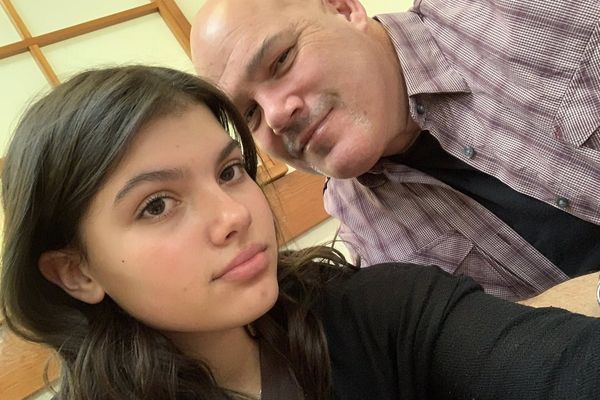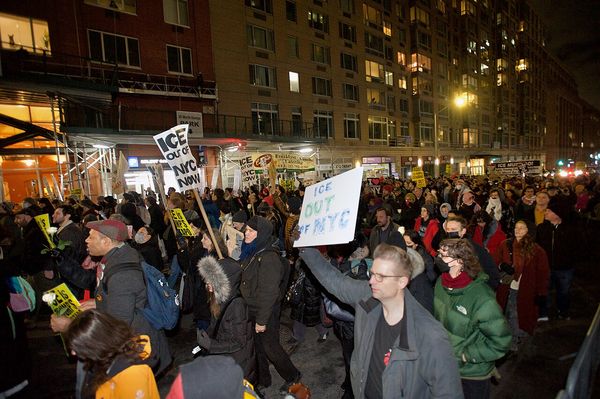Recent home buyer Lorna Zelenak is about to head overseas for a short trip, but she wouldn't be making the same plans today.
"We booked this holiday last year … If you had asked me [then], I would have said that I have no issues going on holiday whatsoever," Ms Zelenak said.
But now? She's going to continue working remotely in her small business, a Melbourne cosmetic injectables clinic, to ensure she has enough clients booked in for her return.
"I think I'm going to be worrying a lot about what I'm coming back to … in order to still pay the bills that I am leaving behind.
"It will definitely be one of my last holidays for a while now."
Like others in the middle-income bracket, Ms Zelenak and her partner typically have scope to choose where to spend their money, with the flexibility to enjoy trips away and dinners out on top of life's bare necessities.
But, as decades-high inflation increases the price of essentials, and climbing interest rates push up home loan repayments, previously comfortable households are starting to reconsider their spending.
"We've pulled back on going out to dinners, going out with friends … For example, we might opt to go to the beach instead," Ms Zelenak said.
"That doesn't cost us anything, or if it does, if we're taking food down, that's much less of a cost than going out to a restaurant."
With about 4 million households in the middle-income bracket, similar pressures are being felt by many.
'A million households' could be squeezed
As the Reserve Bank attempts to bring inflation down and avoid cost-of-living-pain becoming entrenched, its interest rate rises are hitting those with variable home loans.
The RBA frequently references the buffer many households have due to savings built up during the pandemic, but has acknowledged that "others are experiencing a painful squeeze on their budgets".
According to household data collected by the RBA, owner-occupier housing debt rises alongside income.
However, those between the 40th and 80th percentiles of household income have a higher ratio of housing debt compared to the value of their homes.
"There's a key group there, particularly people aged between 25 to 45, who have high debt levels, very high levels of gearing, who don't have a lot of assets," economist Shane Oliver told the ABC.
Dr Oliver, the chief economist at AMP, estimates about 1 million households, or roughly a third of the 3.3 million with a mortgage, will need to make significant spending cuts to keep up with minimum repayments.
"That's a high number — that's 10 per cent of Australian households that are actually quite vulnerable," Dr Oliver said.
He sees it as a "significant risk" to the broader economy if those households cut their spending substantially.
"That impacts everything, whether it's retailers, service providers, tourist operators, and so on, will see less demand over the course of the next 12 months."
That is part of the central bank's plan to help curb inflation, by reducing demand for goods and services.
The board's latest statement referred to its efforts to bring down inflation "while keeping the economy on an even keel" but acknowledged: "The path to achieving a soft landing remains a narrow one."
"The path gets narrower and narrower, the more interest rates go up," Dr Oliver said.
"It's like bringing down an A380 plane onto a very small runway during a storm — getting it right is going to be difficult here."
NAB survey finds cost-of-living stress at 4.5-year high
The risk of a crash landing is starting to creep into the data — Westpac's consumer sentiment survey for February showed pessimism at recession levels — with a particularly large fall in views around current family finances and buying large household items.
"The negative response likely reflects the clear signal from the RBA governor that further increases can be expected in the months ahead," Westpac senior economist Matthew Hassan said.
It follows a recent NAB survey, which found that in the final three months of 2022, consumers' financial stress remained below the survey's average, but stress associated with the rising cost of living climbed to a 4.5-year high.
Consumer stress was highest among 30 to 49-year-olds, those who were unemployed, renting apartments or with children under 18.
Broken down by income, stress was highest among those earning $35,000 to $50,000 a year, followed by those earning less than $35,000.
However, the biggest quarterly increase in stress was seen in the $50,000 to $75,000 income bracket, followed by those earning $75,000 to $100,000.
Spending trimmed but are significant chops coming?
The increased concern has manifested in changes in behaviour.
"We're seeing Australians being much more thoughtful about their spending," NAB's home ownership executive Andy Kerr said.
That was demonstrated by about 40 per cent of survey respondents reducing or stopping spending on so-called "micro treats" — coffees, snacks and bought lunches — as well as cutting down car journeys to save petrol and foregoing entertainment such as cinema or theatre outings.
Yet cuts of a different kind remain the focus at Trudy Petith's hair and beauty salon.
Her business is located in Camden, a suburb on the outskirts of south-west Sydney which is home to more middle-income earners than the average for greater Sydney and a growing cohort of first home buyers.
"The development going on around the town is extreme … We have the second airport just 15 minutes away," Ms Petith said.
On a Friday afternoon, spirits are high at the salon as clients are pampered ahead of the weekend.
But Ms Petith has found the odd hint of cost-of-living pressures creeping into conversation.
"I had a conversation with a client just this morning about rent increases, you know, steel [price] increases … People are building houses and renting at the same time, and those things are coming through.
"I think they're not stressing a lot at the moment, but it is coming."
Ms Petith isn't stressing yet either. She says her business has strategies in place to carry it through a downturn, even if people cut back.
"We really do specialise in 'lived-in' colour … that makes it easier for clients to stretch their appointments," she said.
"Less appointments through the year, that does ease the financial burden on them and they don't notice the regrowth as much.
"People still want to look and feel good … it makes them feel better about whatever else is going on in the world."
However, Dr Oliver worries that the current trajectory could mean more than just a trim around the edges for businesses.
"As consumer spending goes down, you get slower economic growth that impacts the jobs market [and] we'll start to see higher unemployment," he said.
"The risk then becomes whether we slide into recession."
That's something he currently gives a 50:50 chance of eventuating.
Borrowers 'well positioned' after record-low rates
The Reserve Bank has repeatedly pointed to the savings buffers built up during the pandemic as a mitigating factor to the hit of higher rates on households.
National Australia Bank has also taken comfort in the favourable position many borrowers have built up while their home loans have been fixed at record-low rates.
"We've had consumers further paid ahead on their mortgages than we've ever seen," Mr Kerr said.
As of September 2022, 36 per cent of NAB customers were more than two years ahead on repayments.
"So whilst we're seeing that the customers are well positioned going into this, we do know that a small number of customers are going to feel the stress," he said.
In its own analysis, published in October's financial stability review, the RBA estimated 15 per cent of owner-occupiers would have "negative spare cash flows" — or not enough money left over after paying their mortgages.
That estimate was based on the official cash rate hitting 3.6 per cent — or just one further 25-basis-point rate hike.
"We've seen several more interest rate hikes since [October], the Reserve Bank is flagging more to come, and so you'd have to say that that risk has gone up from whatever the Reserve Bank was assessing it to be back in October last year," Dr Oliver said.
A number of forecasters now expect the cash rate to peak above 4 per cent, with NAB economists tipping 4.1 per cent.
Dr Oliver said the more households went "cash-flow negative" the greater the potential blowback on the banking system.
"The problem in all this is it takes a while for it to show up … what might look fine one day can suddenly change a month or so later.
"That's what really needs to be allowed for here … I must admit, I'm now getting a little bit more concerned."
Over recent months, the assumptions Lorna Zelenak based her personal financial forecasts on have also changed.
"When we got our mortgage, we made sure we predicted that we could pay it back if [the interest rate] got as high as 9 per cent," she said.
"We're basing that on both having our steady incomes going in. For my partner, that's OK because he works full time in his position, but for me, that relies on business and clients coming into the clinic at the end of the day."
Right now, unemployment is at record lows and NAB's consumer sentiment survey found job security was causing the least amount of stress to consumers.
But if spending cutbacks accelerate and start to affect businesses, that security could be shaken.
"Initially, I didn't think we were going to see too much of an impact in the clinic, considering we do see people in the medium to high-income range," Ms Zelenak said.
"However, it has concerned me a lot that they aren't following their usual patterns of spending."
In Sydney, Trudy Petith is hoping her customers continue to make room for her services in their tightening budgets.
"Being a hair and beauty salon, this is kind of an escape from reality and for people to be able to get out of that mundane, stressful life."







